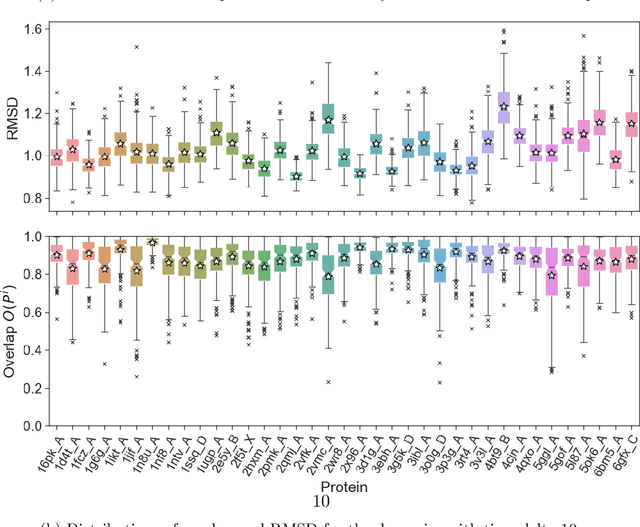Carmen Gratteri
GENEOnet: Statistical analysis supporting explainability and trustworthiness
Mar 12, 2025



Abstract:Group Equivariant Non-Expansive Operators (GENEOs) have emerged as mathematical tools for constructing networks for Machine Learning and Artificial Intelligence. Recent findings suggest that such models can be inserted within the domain of eXplainable Artificial Intelligence (XAI) due to their inherent interpretability. In this study, we aim to verify this claim with respect to GENEOnet, a GENEO network developed for an application in computational biochemistry by employing various statistical analyses and experiments. Such experiments first allow us to perform a sensitivity analysis on GENEOnet's parameters to test their significance. Subsequently, we show that GENEOnet exhibits a significantly higher proportion of equivariance compared to other methods. Lastly, we demonstrate that GENEOnet is on average robust to perturbations arising from molecular dynamics. These results collectively serve as proof of the explainability, trustworthiness, and robustness of GENEOnet and confirm the beneficial use of GENEOs in the context of Trustworthy Artificial Intelligence.
GENEOnet: A new machine learning paradigm based on Group Equivariant Non-Expansive Operators. An application to protein pocket detection
Jan 31, 2022



Abstract:Nowadays there is a big spotlight cast on the development of techniques of explainable machine learning. Here we introduce a new computational paradigm based on Group Equivariant Non-Expansive Operators, that can be regarded as the product of a rising mathematical theory of information-processing observers. This approach, that can be adjusted to different situations, may have many advantages over other common tools, like Neural Networks, such as: knowledge injection and information engineering, selection of relevant features, small number of parameters and higher transparency. We chose to test our method, called GENEOnet, on a key problem in drug design: detecting pockets on the surface of proteins that can host ligands. Experimental results confirmed that our method works well even with a quite small training set, providing thus a great computational advantage, while the final comparison with other state-of-the-art methods shows that GENEOnet provides better or comparable results in terms of accuracy.
 Add to Chrome
Add to Chrome Add to Firefox
Add to Firefox Add to Edge
Add to Edge